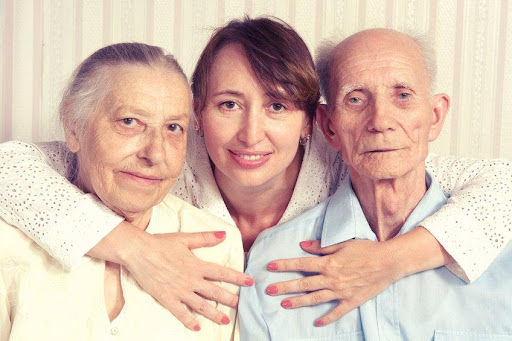
Five misconceptions about becoming a family caregiver
From 2015 to 2020, the number of unpaid family caregivers in the United States jumped from 43.5 million to 53 million, according to a study from the AARP and the National Alliance for Caregiving. This means that 21% of adult Americans, or one in five, act as caregivers to a loved one.
The thought may have crossed your mind recently if you are experiencing growing concerns for an aging loved one close to you. While it is no easy undertaking, there are many positives about providing care in your family. However, there are likely many concerns you have and many misconceptions about what it might be like. Before you make a decision, learn about the truth in caregiving.
Most caregivers are mothers, wives and daughters
Fact: This is an outdated thought that might have once held true but no longer does. Today, 40% of caregivers are men. Additionally, caregivers are growing more prevalent among all age groups. Adult children are increasingly caring for parents or loved ones older than them, several spouses are caring for their loved ones of similar age, and now—more than ever—friends are stepping in to assume care responsibilities as well. Loved ones can stretch beyond family!
Some conditions need to be treated in a facility
Fact: Family caregivers are providing home care to a wide range of health concerns, and they are providing care to family members with co-morbidities more than ever. According to the AARP, rates of family members providing care have all increased for long-term physical conditions, emotional or mental health issues, and memory problems, including Alzheimer’s.
Caregiving is inexpensive
Fact: It may seem like the most attractive option to provide care yourself rather than pay someone else to do it. In a study surveying roughly 2,000 adults, only 40% of caregivers expect they will contribute financially to the care of a family member, but the reality is that 83% actually do.
Family caregiving may be more affordable than relocating your family member to a nursing home, but there are still notable costs to expect. However, most family caregivers do pay less than they would for a facility, even if they hire extra help.
I have to do it all on my own
Fact: There are several resources available to caregivers, beginning with family and friends who can easily step in to help. Even without those resources, other forms of assistance can benefit caregivers without overstepping their role as the lead of care.
Respite care services can step in at any time for the amount of your choosing, from one day to another short-term plan of a few weeks. Visiting Angels’ services provide a compassionate, professional caregiver to alleviate some of the caregiver’s tasks when the caregiver needs a break. Caregiver burnout is very common, and a respite caregiver can allow the family caregiver to accomplish personal tasks, practice self-care, or even have a vacation. Caregiving is hard work, but you don’t ever have to do it alone.
Caregiving is all hard work
Fact: Caregiving for a parent or older family member can be as rewarding to you as it is to their health. The exchange of offering care to someone who once cared for you affords you the feeling that you have given back and made a difference in their lives as well. There will be times of hardship, and there are many symptoms to watch for that accumulate to form caregiver stress syndrome, but the confidence that you took care of your loved ones when they needed it most will follow you throughout your life.
Visiting Angels Matawan offers respite services to aid in your caregiving journey. Caregivers will follow your lead toward tasks and goals as you are still the primary caregiver in your loved one’s life. Options are available to you in the Southern Middlesex to Northern Monmouth Counties from Woodbridge to Middletown. Reach out today to schedule a free in-home consultation, learn about your options, and address your questions and concerns at (732) 671-2899.
